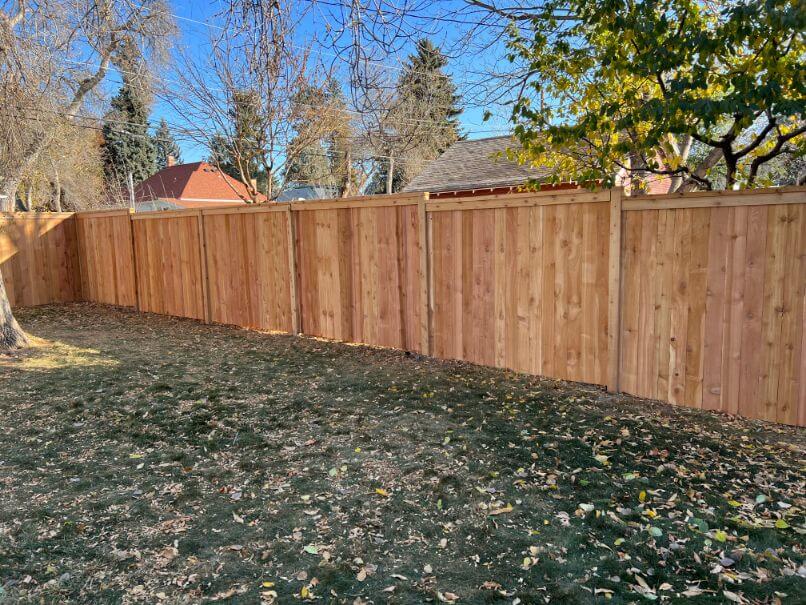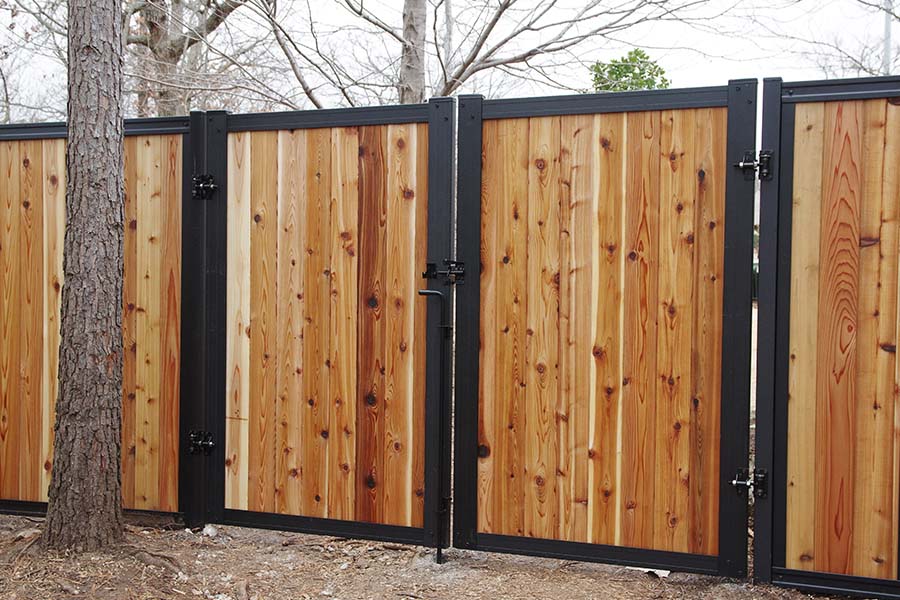Featured
It's crucial to comprehend the authorization demands specific to your location when you determine to mount a fence around your residential building. While mounting a fence can appear like a straightforward home enhancement job, regional regulations and policies need to be complied with to make sure the installation is lawful and compliant. Falling short to protect the proper authorizations could cause penalties and even require you to get rid of the fencing. Right here's a thorough take a look at the permits you may require for fence installment.
Why Do You Required an Authorization for Fencing Setup? A fencing is more than just a barrier in between homes-- it can affect safety, residential property value, aesthetic appeals, and even ecological conditions. Neighborhood governments call for licenses to make sure that fences satisfy particular standards and do not trigger issues for utilities, neighbors, or the neighborhood in its entirety. Permits also make certain that the installation adheres to zoning legislations, developing codes, and security regulations.
![]()
Kinds Of Licenses You May Require. Structure Authorization. A building authorization is one of the most common licenses needed for fence setup. If you're developing a fence over a certain height (generally over 6 feet), you'll likely need a structure authorization.
Zoning Permit. A zoning permit ensures your fencing conforms with height, obstacle, and location laws. Fencings may need to be established back a specific range from sidewalks, roadways, or home lines to avoid obstruction or disturbance with energies.
HOA Approval. If your building belongs to a homeowners organization (HOA), you may need to look for approval prior to installing a fence. HOAs usually have guidelines that control the looks and framework of fencings to guarantee they agree with the neighborhood. You might require to send your strategies for approval, and the HOA may restrict fence elevation, design, or material.
Specialized Permits. In some locations, there might be extra permits required for specific circumstances. If your fencing is near a safeguarded ecological area or located in a flood zone, you might require to get specialized permits related to environmental effect. Likewise, if the fencing remains in a location with underground utilities, you might need to acquire clearance to prevent destructive pipes or cords.
![]()
Easement or Energy Business Permission. Prior to setting up a fencing, it's essential to examine whether the residential property includes an easement, such as an utility easement, which can influence where you can place your fencing. Easements are areas of land assigned for private or public utilities, and you might require consent from the energy firm or various other authority to construct within this area.
Exactly How to Learn What Allows You Required. To ensure that you're adhering to all the needed laws, below's how you can figure out the specific permits required for your fence setup:
![]()
Check Out Your Regional Government Workplace: The first step is to inspect with your local structure or zoning department. Many cities and areas have standards readily available online that define what kinds of authorizations are required for fencing installation. If not, seeing the workplace or calling in person can aid clear up the process. Check Your City's Internet site: Lots of districts give details concerning fencing installments and the authorizations needed with their official websites. Some internet sites also permit you to send applications on-line. Get In Touch With a Fencing Installment Expert: If you're not certain about regional laws, a specialist fencing specialist can help. They are familiar with the allowing process and can assist you with the steps. The Consequences of Not Obtaining an Authorization. Stopping working to protect the necessary permits before installing a fence can result in considerable effects. You might be fined or called for to remove the fence entirely. In addition, if you make a decision to sell your residential property in the future, the lack of a license can prevent prospective customers, as they might see it as an indicator that the home is not compliant with regional legislations. Guaranteeing that you have the appropriate licenses will certainly conserve you time, money, and frustrations over time.
Verdict. Installing a fencing around your residential home can include both safety and security and aesthetic charm, but it's important to ensure you're following the lawful action in the procedure. Investigating the particular permit demands for your location, including building authorizations, zoning guidelines, HOA approval, and utility permissions, will certainly help guarantee your fencing setup goes efficiently. Making the effort to comprehend these demands currently can conserve you from pricey errors and potential lawful concerns down the line.
Why Do You Required an Authorization for Fencing Setup? A fencing is more than just a barrier in between homes-- it can affect safety, residential property value, aesthetic appeals, and even ecological conditions. Neighborhood governments call for licenses to make sure that fences satisfy particular standards and do not trigger issues for utilities, neighbors, or the neighborhood in its entirety. Permits also make certain that the installation adheres to zoning legislations, developing codes, and security regulations.

Kinds Of Licenses You May Require. Structure Authorization. A building authorization is one of the most common licenses needed for fence setup. If you're developing a fence over a certain height (generally over 6 feet), you'll likely need a structure authorization.
Zoning Permit. A zoning permit ensures your fencing conforms with height, obstacle, and location laws. Fencings may need to be established back a specific range from sidewalks, roadways, or home lines to avoid obstruction or disturbance with energies.
HOA Approval. If your building belongs to a homeowners organization (HOA), you may need to look for approval prior to installing a fence. HOAs usually have guidelines that control the looks and framework of fencings to guarantee they agree with the neighborhood. You might require to send your strategies for approval, and the HOA may restrict fence elevation, design, or material.
Specialized Permits. In some locations, there might be extra permits required for specific circumstances. If your fencing is near a safeguarded ecological area or located in a flood zone, you might require to get specialized permits related to environmental effect. Likewise, if the fencing remains in a location with underground utilities, you might need to acquire clearance to prevent destructive pipes or cords.

Easement or Energy Business Permission. Prior to setting up a fencing, it's essential to examine whether the residential property includes an easement, such as an utility easement, which can influence where you can place your fencing. Easements are areas of land assigned for private or public utilities, and you might require consent from the energy firm or various other authority to construct within this area.
Exactly How to Learn What Allows You Required. To ensure that you're adhering to all the needed laws, below's how you can figure out the specific permits required for your fence setup:

Check Out Your Regional Government Workplace: The first step is to inspect with your local structure or zoning department. Many cities and areas have standards readily available online that define what kinds of authorizations are required for fencing installation. If not, seeing the workplace or calling in person can aid clear up the process. Check Your City's Internet site: Lots of districts give details concerning fencing installments and the authorizations needed with their official websites. Some internet sites also permit you to send applications on-line. Get In Touch With a Fencing Installment Expert: If you're not certain about regional laws, a specialist fencing specialist can help. They are familiar with the allowing process and can assist you with the steps. The Consequences of Not Obtaining an Authorization. Stopping working to protect the necessary permits before installing a fence can result in considerable effects. You might be fined or called for to remove the fence entirely. In addition, if you make a decision to sell your residential property in the future, the lack of a license can prevent prospective customers, as they might see it as an indicator that the home is not compliant with regional legislations. Guaranteeing that you have the appropriate licenses will certainly conserve you time, money, and frustrations over time.
Verdict. Installing a fencing around your residential home can include both safety and security and aesthetic charm, but it's important to ensure you're following the lawful action in the procedure. Investigating the particular permit demands for your location, including building authorizations, zoning guidelines, HOA approval, and utility permissions, will certainly help guarantee your fencing setup goes efficiently. Making the effort to comprehend these demands currently can conserve you from pricey errors and potential lawful concerns down the line.
Latest Posts
Find Out Cut Costs on Car Maintenance with Montclare Auto Repair’s Exclusive Deals
Published en
1 min read
Uncover Top Car Repair Solutions at Montclare Auto Repair – Expert Care for Your Vehicle
Published en
1 min read
Explore WyHy Federal Credit Union – Wyoming’s Best Banking Choice for Your Money Goals
Published en
1 min read
More
Latest Posts
Find Out Cut Costs on Car Maintenance with Montclare Auto Repair’s Exclusive Deals
Published May 28, 25
1 min read
Uncover Top Car Repair Solutions at Montclare Auto Repair – Expert Care for Your Vehicle
Published May 27, 25
1 min read
Explore WyHy Federal Credit Union – Wyoming’s Best Banking Choice for Your Money Goals
Published May 26, 25
1 min read